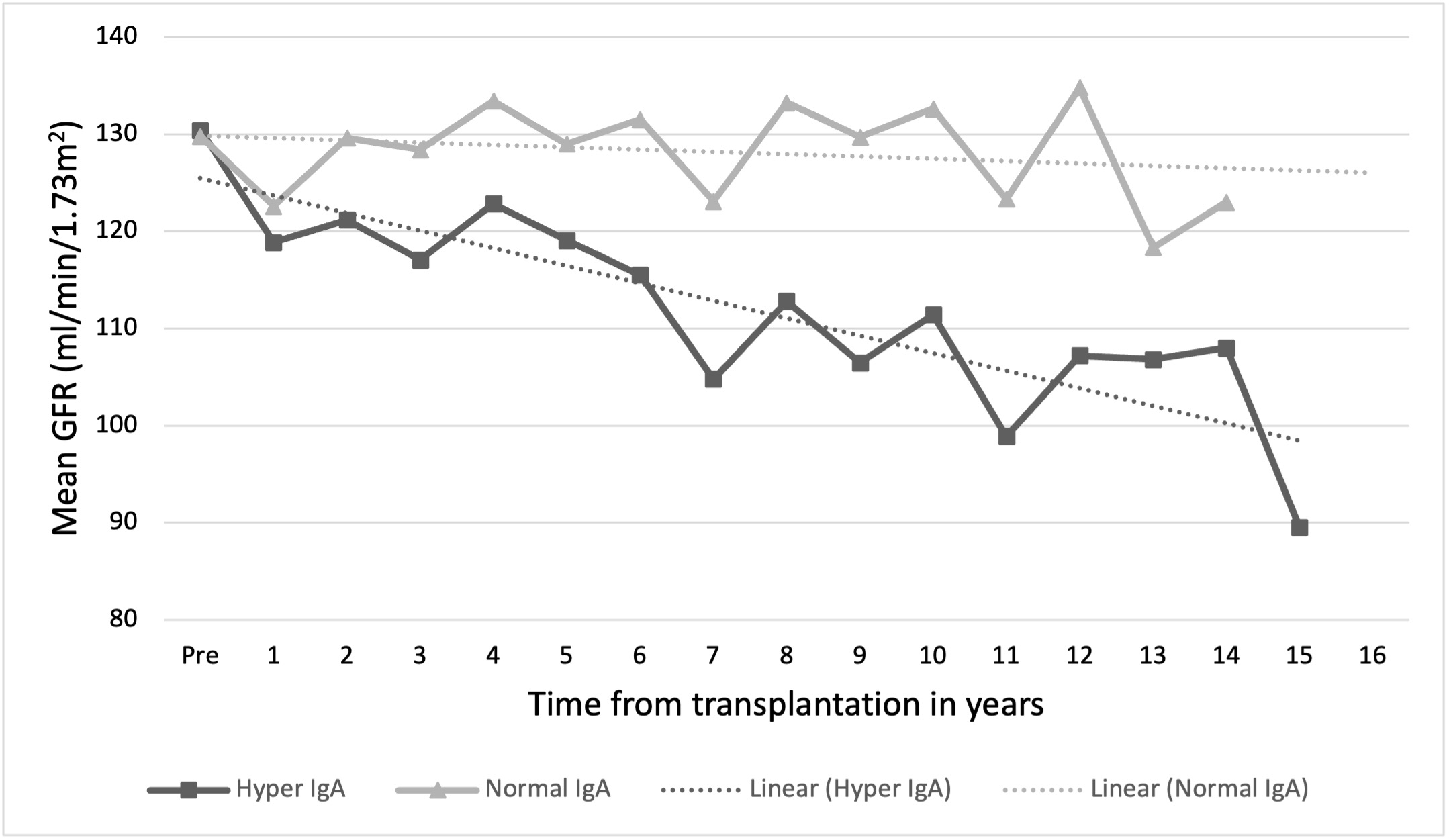Increase of circulating IgA levels after pediatric liver transplantation
Guillermo Costaguta1, Stéphanie Dion1,2, Marie-Éve Chartier1,3, Massimiliano Paganelli1,3, Fernando Álvarez1,3.
1Gastroenterology, Hepatology and Nutritions, CHU Sainte-Justine, Montreal, QC, Canada; 2Liver transplant coordination, Transplant Québec, Montreal, QC, Canada; 3Department of Pediatrics, University of Montreal, Montreal, QC, Canada
Introduction: Liver transplantation is the treatment for several diseases, but it is not free of complications. We observed a 16 years-old patient with elevated levels of serum IgA who developed kidney failure and a biopsy was compatible with IgA-nephropathy.
Methods: Retrospective cohort study of liver recipients at CHU Sainte-Justine. Main data included allergies and presence portal hypertension, as well as urea, creatinine, liver function tests, immunoglobulins, hematuria, proteinuria, and glomerular filtration rate (GFR). We excluded patients with previous renal disease. Two groups were established: hyper-IgA (Group A) and normal-IgA (Group B) We reviewed records of patient treated with cyclosporin A (CsA). GFR was measured by Technetium-99m and adjusted for surface.
Results: 85 patients were included, 56% had elevated IgA with no differences in sex, underlying disease, and re-transplantation. They were younger (mean age 28 vs 47 months, p 0.003). Furthermore, 54% of group A had eczema while only 5% in group B (p < 0.001). Food allergies were also more common (p < 0.001). Splenomegaly was more frequent in group A (p 0.02) and spleen size Z-score was different (p 0.03). Significant proteinuria was exclusive of group A (p 0.001). There were no differences in urea and creatinine. GFR decreased rate was different (p < 0.001) from year 7 and onwards. (Figure 1) Only 13% in the CsA group had abnormal IgA (p 0.002).
Conclusion: Kidney disease may have an immunological origin, related to the use of immunosuppressive drugs and abnormal immune responses to intestinal antigens.
Figure 1 
If you have any questions during the meeting, please go to the registration desk. Our emails will be monitored sporadically.
REGISTRATION DESK OPENING TIMES
Sunday, October 15, 16:00-18:00 Monday, October 16, 07:00-18:00 Tuesday October 17, 07:00-12:30